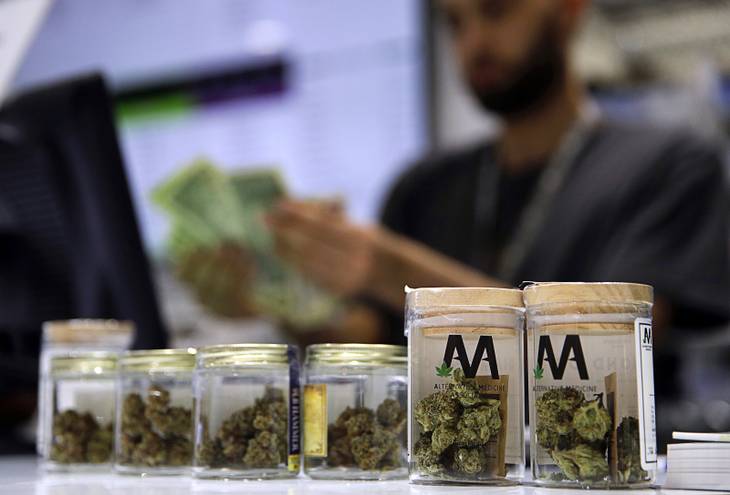Attorneys for companies that won Nevada retail marijuana dispensary licenses last year argued Friday during closing arguments of a hearing addressing the legitimacy of the licensing process that there was no reason for a temporary stop on the licenses already given.
The state approved 61 conditional licenses out of 460 applicants last December, and two dozen of those rejected applicants filed suit seeking the hold on the awarded licenses. The hearing, which has been heard on-and-off since May, is to determine if Nevada regulators were fair during the late 2018 awarding process.
Lawyers representing the state and businesses that received licenses argued that an injunction on the licenses given would not provide relief to the losing applicants who claim they were unfairly treated. Attorney Todd Bice argued encroachment on market share — when one business can operate and another cannot — is not grounds for an injunction.
“Every business could come to the court and say … any new competitor erodes my market share,” he said. “That is not a legally protectable injury, by the way.”
The defendants’ closing remarks also stressed the amount of money that businesses have lost during the licensing freeze and ongoing court proceedings.
“All it’s going to do is harm my clients and harm the public and keep the black market in play because now there won’t be as many people out there satisfying the public’s desire for this product,” Bice said. “That’s all that this is about — ‘if I can’t have it, you can’t have it.’”
Defendants also addressed other arguments, including plaintiffs’ allegations that the 2016 ballot question allowing recreational marijuana to be sold would require all owners of a company to go through background checks. The state Department of Taxation has held that only owners with a 5% or more interest stake would have to go through the background checks. Defendants argue that the ballot question gave the department a large grant of power to decide how to regulate the licenses.
Attorney Rusty Graf said that waiting until after the field was winnowed down into those with approved licenses is cheaper for the state.
“The ballot initiative doesn’t say when (the background checks) are supposed to occur,” Graf said. “Your honor, the only efficient and reasonable way for that to occur is to occur when you’ve already winnowed it down. You’ve gone from the 462 applicants down to 17 entities.”
State attorney Steve Shevorski said losing bidders presented no evidence that officials favored some bidders or improperly shaped the rules by having temporary workers evaluate and attach numerical scores to 462 applications before the tax agency awarded 61 new licenses. He added that there would be no reason to stop the licensing process or order a do-over.
Clark County District Judge Elizabeth Gonzalez didn’t make an immediate ruling but scheduled a court hearing Aug. 23 for a possible written order. All sides expect her decision to be appealed to the Nevada Supreme Court.
